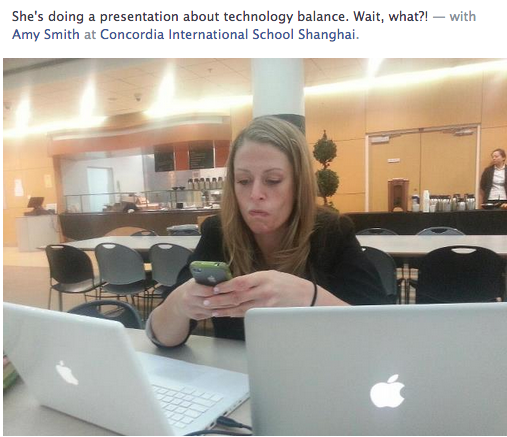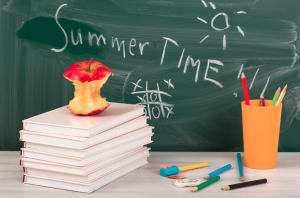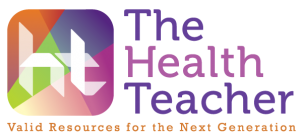In a 2011 study done by the McCann World Group, 53% of 16-22 year-olds said they would rather give up their sense of smell than their favorite technology.
When this first came out and I presented it to my 8th grade Health class, way back in 2011, their reactions were all pretty much the same.
Those teenagers have lost their freaking minds.
But in this year’s class? Not so much.
Sense of smell… I can live without that.
But technology? How would I get my work done? Get into college? Build and sustain relationships? Have any idea what was going on in the outside world?
My knee-jerk reaction was to steer them back to sanity, but when they turned the question back on me, I actually had to agree.
I don’t think the Amish will be hiring a middle school health teacher anytime soon, and I doubt I’d last more than a week or two on a commune. My colleagues here would get pretty upset if I stopped reading my emails, and let’s not even get into (at least not with my 8th graders) the impact it would have on my social life.
If being cut off from the Internet stirs up feelings of anxiety and disconnect- even for me, a digital immigrant- I can’t imagine how restless my little natives would be without it. (Those of you who have kids of your own don’t have to imagine—I’m sure you’ve seen it first hand.)
In a landmark case this past January, the German high court declared access to the Internet a basic human right, and the latest research from the Pew Center tells us that 95% of American teenagers are on the Internet (for our students, you can safely swap that to100).
So, if the Internet is becoming a basic human need, how should we as educators be adapting our curriculum to help the kids navigate and balance their digital lives?
In the same way we approach nutrition.
Technology balance isn’t black and white, and it’s not about specific numbers or percentages. It varies from child to child, and different approaches work for different kids. A huge part of growing up is discovering how to make those choices on your own… with some missteps, and a whole lot of guidance, along the way.




